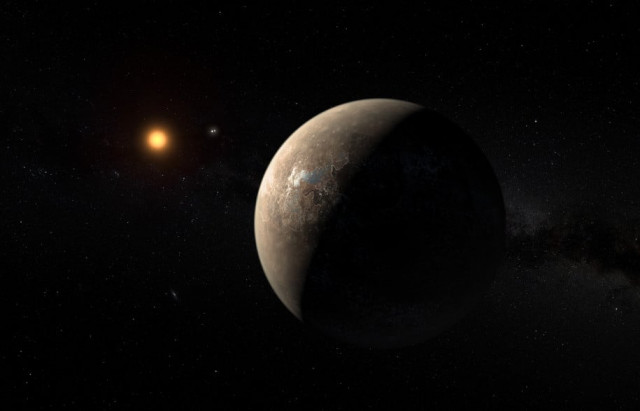Newly discovered planet could potentially support life, European observatory
Thousands of exoplanets have been discovered to date but only around 50 are considered to be theoretically habitable

“Proxima B”. PHOTO: European Southern Observatory (ESO)
The ESO said it had discovered the planet, Ross 128b, orbiting a star within the constellation of Virgo and it is comparatively 'close' at just 11 light years outside the Solar System.
Monster planet found orbiting dwarf star: 'surprised' astronomers
One light year is equivalent to 9.46 trillion kilometres (5.85 trillion miles).
But in inter-galactic terms that is not so far, says Xavier Bonfils, an astronomer for the French CNRS research centre at the Grenoble Observatory for Sciences of the Universe.
Scientists discover new planets, including 'super Earth' that could support life
"Ross 128b is very close, which will allow us to see it with a telescope such as E-ELT (European Extremely Large Telescope) in construction for 2025," Bonfils told AFP.
Researchers say Ross 128b could potentially harbour life, as it has a similar mass to that of Earth - a multiple of 1.35 - and "its surface temperature could equally be close to that of Earth".
Scientists discover giant new planet orbiting two suns
Such conditions could potentially support liquid water, indispensable to life as we know it.
The next step will be to see if the atmosphere contains traces of water, dioxygen or methane.
Several thousand exoplanets have been discovered to date but only around 50 are considered to be potentially habitable.



















COMMENTS
Comments are moderated and generally will be posted if they are on-topic and not abusive.
For more information, please see our Comments FAQ